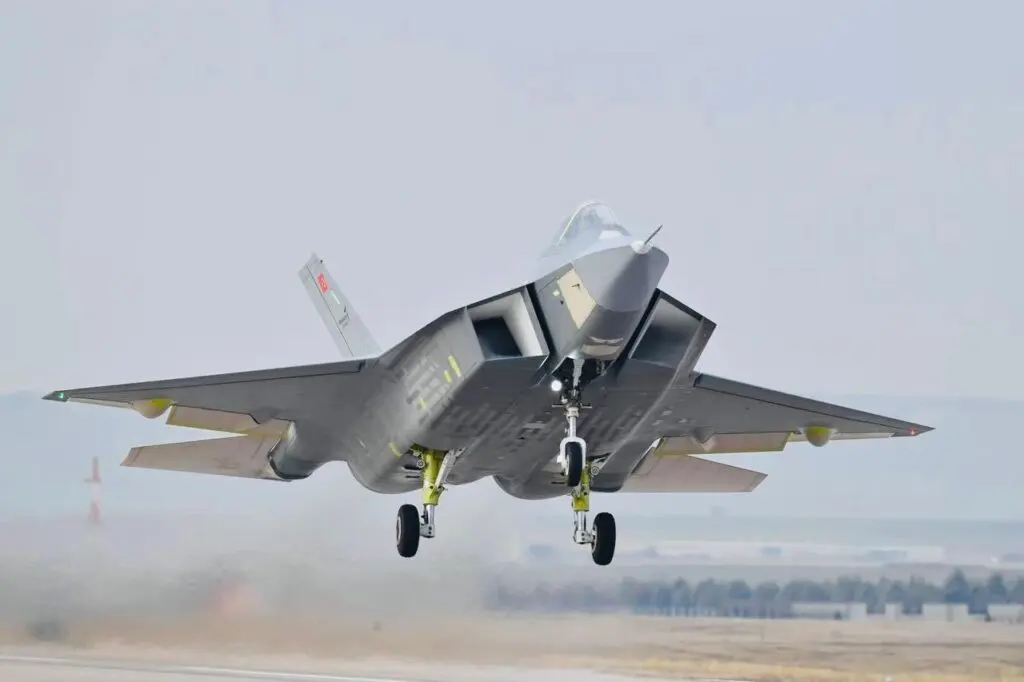In a new chapter of Turkey’s quest for fifth-generation fighters, local media in the U.S. and Turkey have recently echoed a renewed proposal from the U.S. government for Turkey to return to the F-35 stealth fighter program in exchange for ceding control of its Russian-origin S-400 air defense systems. The proposal is said to have been put forward through diplomatic channels last July, although it raises numerous doubts regarding its veracity and feasibility.


It’s important to remember that in 2018, Turkey lost access to the F-35 program despite having made significant investments (estimated at $1.25 billion) to bring it to fruition. The U.S. Congress, in response to Turkey’s decision to acquire the aforementioned Russian S-400 systems, completely prohibited an operation that seemed imminent; considering, for example, that local supply networks for manufacturing parts had already been activated according to claims from Ankara (which were expected to yield up to $9 billion in revenue). It goes without saying that this led to heightened tensions between the two countries, with then-Turkish Foreign Minister Mevlüt Çavuşoğlu stating that “this is a misguided approach; it will lead to a crisis.”
In this context, part of the local political spectrum has repeatedly pushed for proposals aimed at disconnecting Turkey from its S-400 systems in order to normalize relations with NATO allies and thus return to the possibility of acquiring fifth-generation fighters. An illustrative example of this can be found in the statements of former State Minister Cavit Caglar, who said: “If I were in charge, I would remove the S-400 from Turkey… We need to find a way out. We have good relations with Russia; the best way forward is to negotiate and explain that, as a NATO member, we cannot use the S-400 against NATO. We need to address this issue quickly.”

Is there a new possibility ?
The new proposal from Washington, if true, would be a significant breath of fresh air for these efforts. The U.S. plan, as reported by media such as The National Interest (U.S.) and Ekathimerini (Greek), would involve Ankara beginning to transfer its S-400 systems to be operated by the troops of the 39th Air Base Wing of the U.S. Air Force, stationed at Incirlik Air Base.
This, at least in principle, would facilitate the U.S. government’s ability to roll back sanctions imposed on Turkey, which are regulated by the Countering America’s Adversaries Through Sanctions Act (CAATSA). Although there has yet to be a determination from the Turkish government, this could pave the way for a return to the F-35 program, allowing for a relaxation of relations between the countries and a considerable upgrade of the Turkish Air Force’s capabilities.

Statements from both sides can be noted at this point. On the Turkish side, current Foreign Minister Hakan Fidan stated: “We are considering creative formulas and solutions. Ultimately, the final direction of the president will be decisive, but we are closely monitoring the political dimension. At least both parties agree that this issue has become an obstacle in bilateral relations.”
From the U.S., Michael Rubin, a senior fellow at the American Enterprise Institute and former Pentagon official, claimed: “My sources in the region say that during her visit to Turkey from July 1-2, 2024, Celeste Wallander, Under Secretary of Defense for International Security Affairs, and Michael Carpenter, Special Advisor to the President and Senior Director for Europe at the National Security Council, recently discussed with their Turkish counterparts the reactivation of the F-35 agreement. In exchange for re-entering the F-35 program, they demanded that Turkey deliver the S-400 to the U.S. or transfer them to the U.S.-controlled sector at Incirlik Air Base.”

A path filled with obstacles
However, a wide range of issues must be addressed that would obstruct the aforementioned proposal, leading to a negative response from the Eurasian country today and making a short-term change appear unlikely. Among the most important issues are a potential response from Moscow that would not endorse any transfer of its S-400 systems (which could affect other areas of the bilateral relationship with Turkey), the current local development of the TAI KAAN fighter, and the problematic relations with Greece, which has already ordered its F-35s as part of its capability renewal plan.

Regarding the first issue, it should be noted that Moscow has publicly expressed its strong opposition to any attempt to transfer its equipment to U.S. troops, foreseeing that this would lead to greater familiarity of its adversary with one of its most advanced air defense systems. The legal argument was articulated by Russian Foreign Minister Sergey Lavrov during the current UN Assembly: “Arms contracts contain the end-user certificate clause… To do anything different with the products delivered under that certificate, which specifies the end-user as the country that received the arms, consent from the country that sold those arms is needed.”
Secondly, it should be recalled that Turkey already has its own program to achieve fifth-generation capabilities for its Air Force, namely the KAAN program. This issue presents a undoubtedly difficult bifurcation, as one must consider whether the country would be willing to sacrifice its good relations with Russia in exchange for F-35 aircraft while it has this possibility, all while raising suspicions regarding the true capabilities of Turkey’s military-industrial complex to successfully undertake such an endeavor.


Lastly, though not less important, is the issue of the regional scenario that Greece and Turkey maintain, which remains tense despite both being NATO members due to territorial disputes. In this regard, it should be noted that following Turkey’s withdrawal from the F-35 program, the Hellenic Air Force gained a technological advantage over its Turkish counterpart, considering its acquisition of both F-35 fighters and French-origin Rafale aircraft. This allowed for a certain degree of balance, given the larger number of aircraft available to Turkey, still limited to the F-16 platform. It remains to be seen how this issue will be handled should Washington’s proposal materialize.
Images used for illustrative purposes.
You may also like: Turkey seeks U.S. approval for the provision of F404 engines to equip its new light fighter, the TAI Hürjet










It is really stupid to expect Turkey transfers s-400 systems to US. The reason is, US is not so strong anymore to deserve that. US lost its control over the World. Even israil does not care about US’s requests. The other factor is, use of F-35 is not free from US. Turkey does not accept such dependency condition.
Turkey 🇹🇷 made a mistake buying the S-400 in the first place, while USA 🇺🇸 overreacted by sanctions on Turkey who should not stab Russia in the back by handing the s-400 to US. The only fair solution to this econo-political bottle neck is to return the s-400 back to Russia with whatever financial consequences this will incur. This will maintain Turkey face and credibility. Russia 🇷🇺 will understand the pressure without a grudge. However Turkey 🇹🇷 should put a condition that US to lift all sanctions accordingly.
In simple terms Turkey is American slave under NATO, Russia need to demand Turkey to return the SU400 … Sending the defense system to USA will mean betrayal to Russia and deserve consequences.